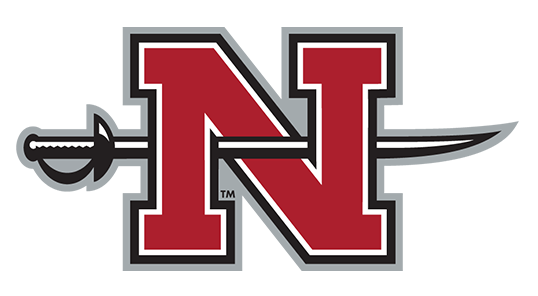Brian Heck, Ph.D.
Associate Professor of Mathematics
Head of the Department of Mathematics
Office: 108 Peltier Hall
Phone: 985-448-4381
Description
The program leading to the Master of Science degree in Community/Technical College Mathematics requires the completion of thirty-three semester hours in the fields of mathematics, education, and/or computer science. The primary focus of the program is the preparation of mathematics teachers for community and technical colleges statewide and beyond. The curriculum will also strengthen secondary teachers’ mathematics content understanding as well. The program consists of a mathematics/teacher education core consistent with post-secondary mathematics education training, as well as elective content selected from mathematics, education, and computer science. The elements of the Master of Science degree serve to make prospective community college mathematics educators proficient in their content areas, and to enhance the professional development of secondary and post-secondary instructors.
Admission Requirements
In addition to all general requirements for admission to the university and to graduate studies, applicants must:
- have a bachelor’s degree (with mathematics training which includes three-dimensional calculus and at least nine additional hours of mathematics at the junior level or above, from accredited institutions, and approved by the Department); AND
- submit three letters of recommendation; AND
- have a minimum GPA of 2.75; OR
- have a minimum GPA of 3.0 on the last 60 hours of coursework completed; OR
- have a minimum GPA of 2.50 on a 4.00 scale AND attained a combined (verbal and quantitative) GRE Revised General Test score of 300.
An applicant who has a bachelors degree and who has a minimum GPA of 2.00 on a 4.00 scale and who lacks exactly one of the admission requirements listed above may be admitted to pre-program status.
Once admitted to pre-program status, a student may exit pre-program status by fulfilling the requirement he or she lacked upon admission to pre-program. In order to fulfill the missing requirement, the pre-program student must:
- Successfully complete prerequisite courses prescribed by the Department. (These courses cannot be applied toward the degree.)
- Successfully complete courses in mathematics and the sciences until overall GPA or GPA on last 60 hours rises to 2.50. (Courses taken to fulfill this requirement cannot be applied toward the degree.) OR: Obtain approval for admission by a majority vote of the mathematics graduate faculty.
- Take the GRE during the semester of admission to pre-program, and meet the admission criterion.
- Submit three letters of recommendation during the semester of admission to pre-program.
Graduate Course Work
Required Courses (18 hours)
- MATH 509 (3) Logic and Foundations of Mathematics
(cornerstone course taken first semester) - MATH 510 (3) Number-theoretic and Discrete Structures
- MATH 523 (3) Geometric and Algebraic Structures
- MATH 584 (3) Technology and Communication in Mathematics
(capstone course normally taken in final semester) - MATH 578 (3) Research in Mathematics Education
- MATH 580 (3) Topics in the School Mathematics Curriculum
- Grade of “S” in MATH 595 (0) Master’s Comprehensive Examination
Elective Courses (15 hours)
Elective course work is selected from approved courses in mathematics, education, computer science, and/or physical science. At least nine hours of electives must be titled MATH. The following list may not be comprehensive:
Mathematics
- MATH 511 (3) Calculus and Analytic Structures
- MATH 512 (3) Probability and Statistics
- MATH 530 (3) Introduction to Decision Theory
- MATH 540 (3) Applied Matrix Analysis
- MATH 557 (3) Applied Analysis I
- MATH 558 (3) Applied Analysis II
- MATH 570 (3) Mathematical Modeling and Problem Solving
- MATH 573 (3) Topics in the History of Mathematics
- MATH 588 (3) Topics in Mathematics
- MATH 589 (3) Topics in Graduate Mathematics
- MATH 590 (3) Topics in Graduate Mathematics
Computer Science
- CMPS 406* (3) Software Engineering
- CMPS 410* (3) Special Topics
- CMPS 418* (3) Artificial Intelligence and Simulation
Education/Professional Development
- EDFR 503 (3) Philosophy of American Education
- EDFR 513 (3) Independent Study in Education
- EDTL 501 (3) Design and Development of Multimedia Instructional Units
- EDTL 503 (3) Educational Telecommunications, Networks, and the Internet
- EDTL 505 (3) Technology Leadership in Schools
- EDTL 506 (3) Professional Development of K-12 Technology Integration
- EDTL 509 (3) Educational Technology Rea
- EDTL 511 (3) Advanced Telecommunications and Distance Learning
- MATH 577 (3) Topics in Mathematics
*Undergraduate courses which may be taken for graduate credit.
Master’s Comprehensive Examination
During the final semester or session, candidates for the M.S. degree must take a comprehensive examination.
A candidate must be registered in the university for the semester or session in which the comprehensive examination is taken and must register for MATH 595.
A candidate who fails the examination may retake the examination at the next or a later regular administration of the examination. No special examination will be given. No candidate will be permitted a third examination.
Responsibility of Student
Graduate students are responsible for becoming fully acquainted with all regulations and requirements pertaining to them. Only regulations and requirements pertaining to graduate students are stipulated in this section of the Catalog, but general regulations and requirements pertaining to all students are to be found elsewhere in the Catalog. This Catalog is not to be interpreted as a contract between the university and the graduate student.
